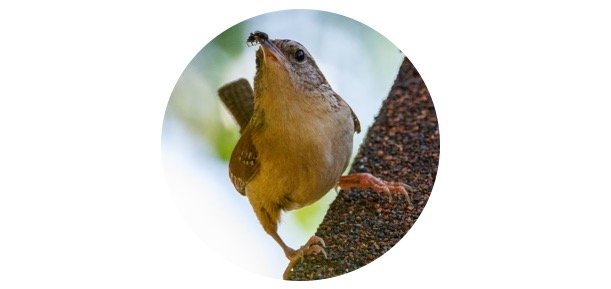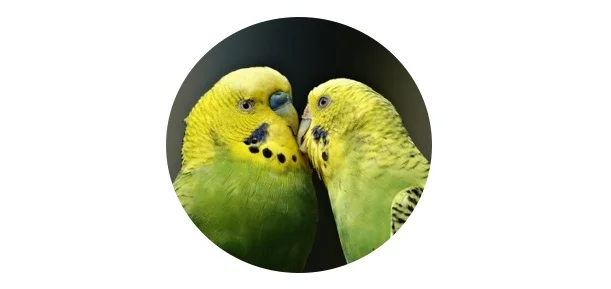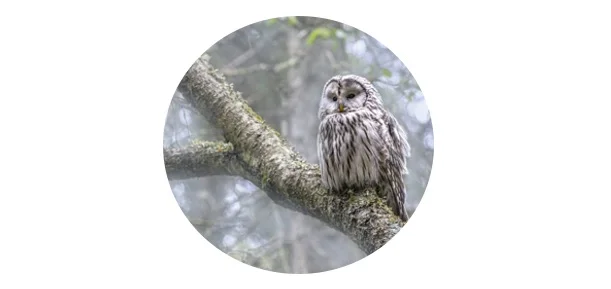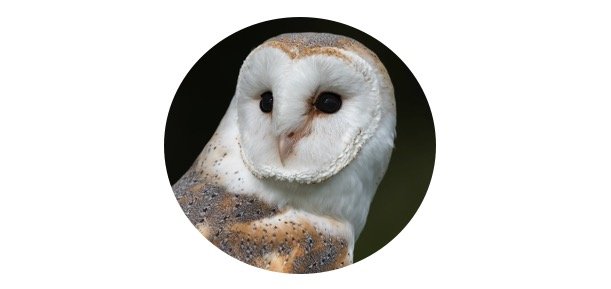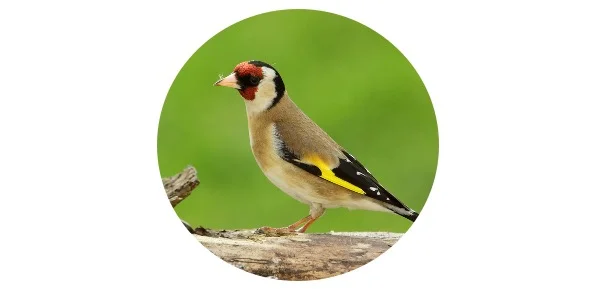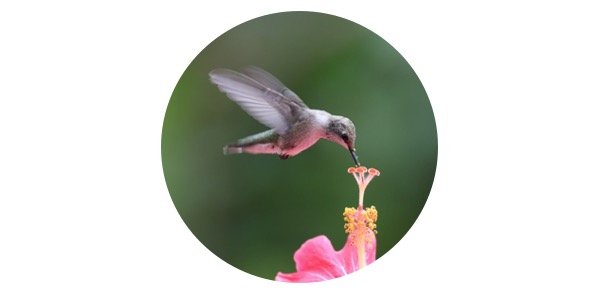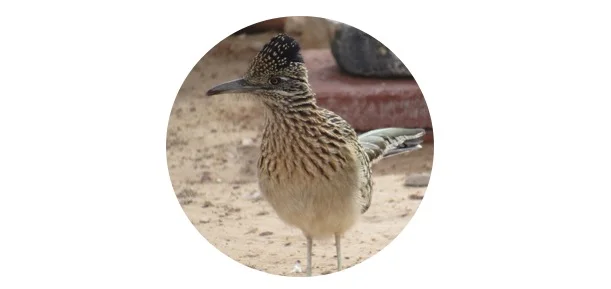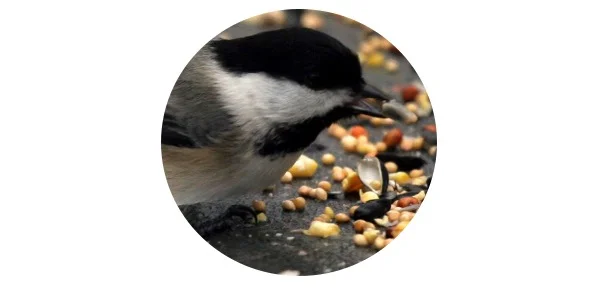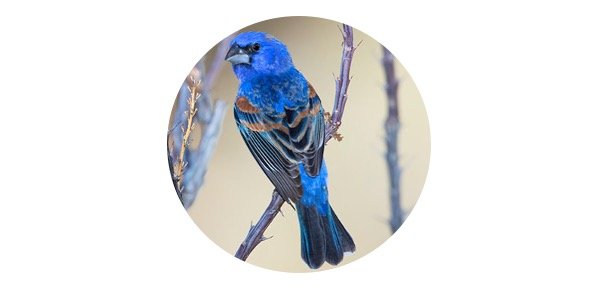What Do Geese Eat? All You Need To Know
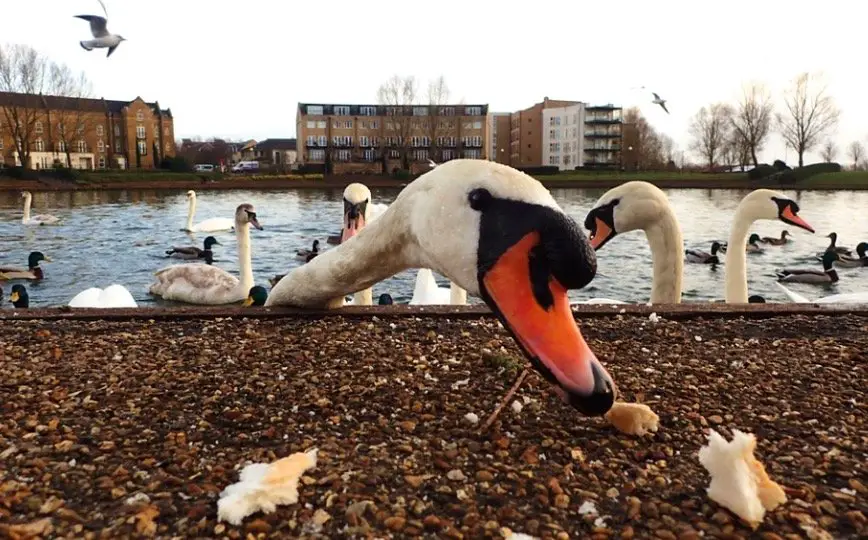
Table of Contents
What Do Geese Eat?
Geese include large waterfowl that are related to ducks and swans. People are being domesticating geese for almost 2000 years, which explains how they’re so common in literary history and folk tales, as shown by famous idioms and phrases “A wild goose chase” and “roasted his/her goose” are two examples. Geese are large, stocky and often quite plump, so what do geese eat?
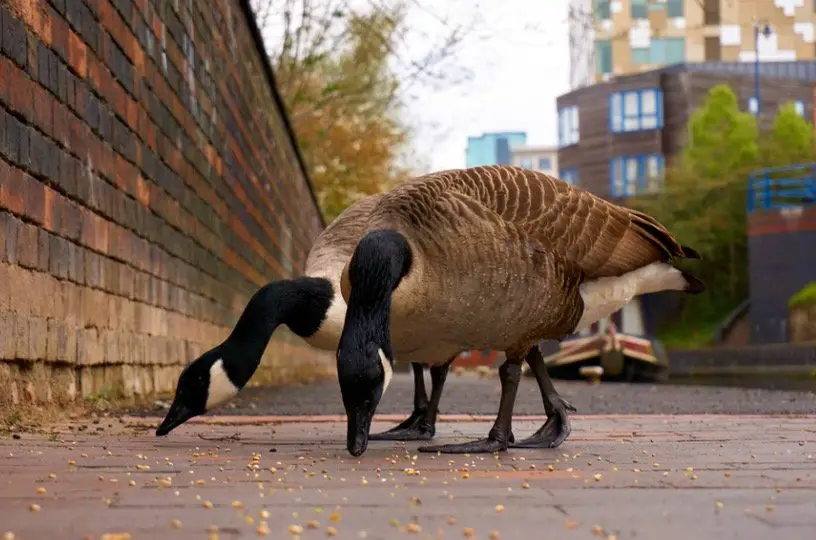
The vast majority of geese eat opportunistically. However, geese food is largely comprised of vegetable matter, seeds, grass, roots, grains, bulbs, berries, and water plants are examples. Herbivores include certain animals, such as Canadian geese.
While geese are commonly labelled as ‘greedy,’ they are famously fussy eaters! Geese are a sociable, cheerful, and raucous bird that couples for life. They are well-adapted to cold temperatures, since they live and breed mostly in the Northern Hemisphere.
Geese, like many other waterfowl including swans and ducks, need a thick coating of fat on its underbelly to protect it from freezing water, indicating that its feeding is fairly difficult. Several species of geese live in the far northern area, including Greenland, Canada, and Siberia’s arctic tundra.
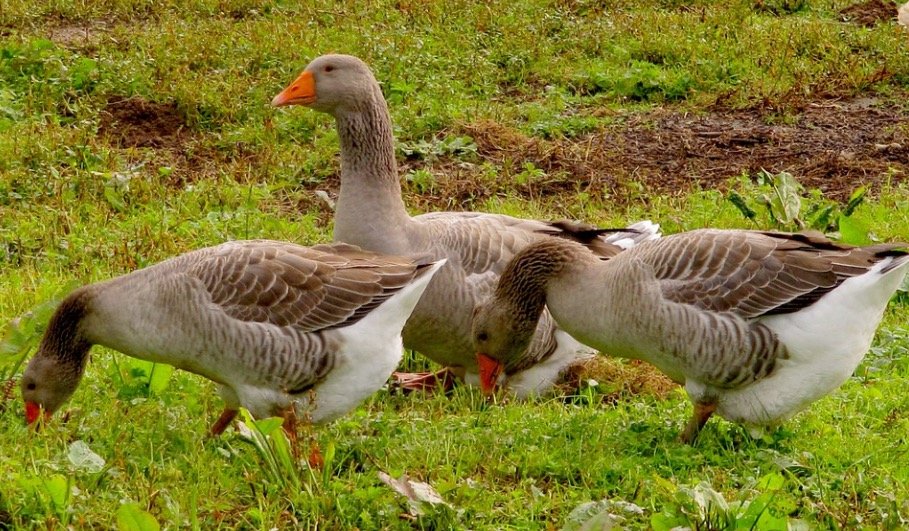
What do Geese eat in the grass?
Geese use a powerful toothed beak that is suitable for consuming thick plant stuff. They’ll cheerfully feed themselves on grass if they are unable to locate anything to consume.
Grass is not the most nutritionally complete food, as a result, geese and other grass feeding mammals, such as cows, must balance by consuming a large amount of grass.
A huge goose may devour 1 kilogram of grass daily, and is about one-fifth of its whole body mass, and it can devote 50 percent of its day grazing!
While geese consume grass, they are most looking after roots, seeds, and bulbs that are more nutritious than grass itself. While geese are unlikely to be looking for live insects, they are unlikely to mind picking up the odd bug or tiny worm while dining.
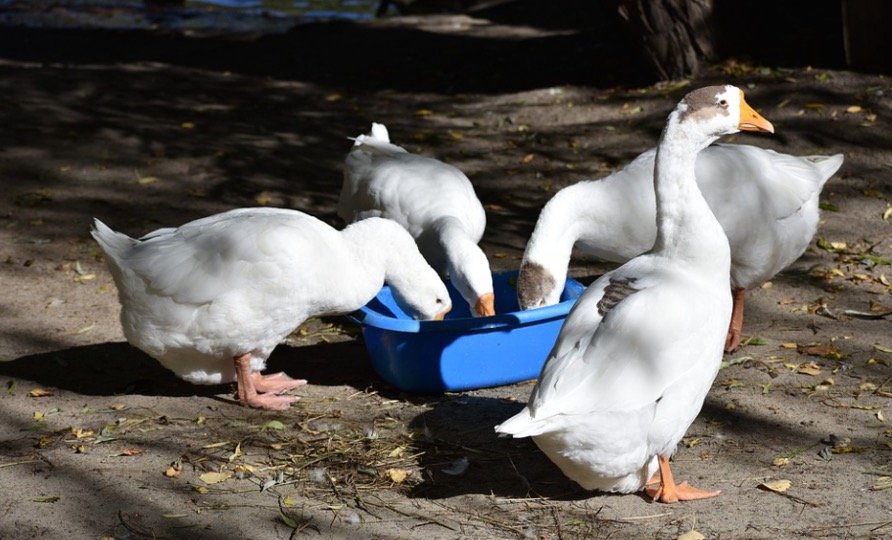
What do Geese eat in the water?
Geese, like other birds, feed on aquatic plants such as seaweed, kelp, and watercress. Geese, on the other hand, prefer to forage on land rather than in water. Geese may consume tiny water invertebrates or also the small shrimp, however, they do not like to eat flesh.
Geese, in general, like to consume plant things and would not go out of the way to graze on aquatic animals or fish. Geese prefer to consume land vegetation than water vegetation.
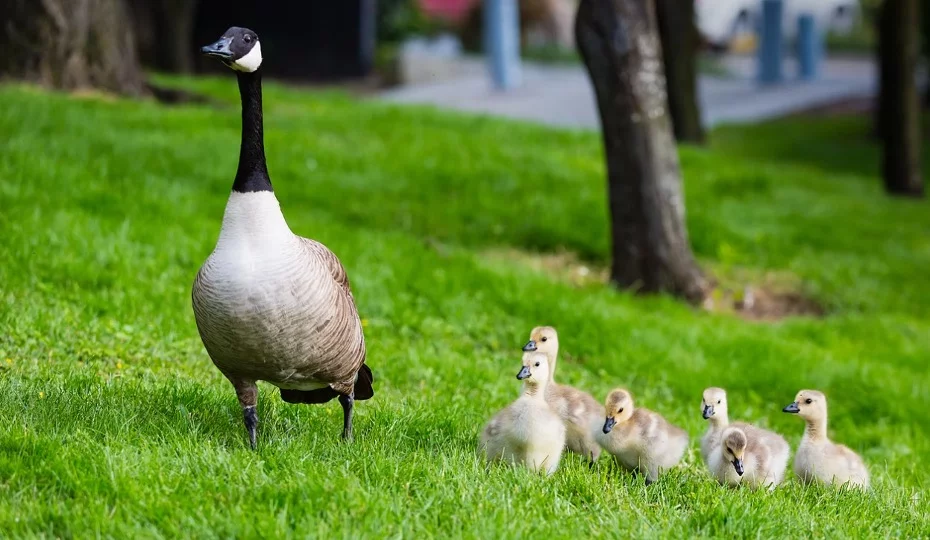
What do Geese eat in the winter?
In the winter, most, if not all, geese relocate to escape the cold. Geese will boost their carbohydrate intake by eating more grains such as wheat and barley to develop fat stores; carbs also assist birds generate high body temperature.
Geese are large as well as stout, with lots of stored fat – they’ll consume everything to maintain their boldly chubby appearance!
What is the best food for Geese?
Plants make up the bulk of a goose’s diet, grain like barley, oats, and wheat, and also birdseed, sweet corn, vegetables, and meadows like clovers and bluegrass, are all part of a healthy diet for geese.
Due to their vast stomachs, both forest and farmed geese are notorious for becoming fussy eaters. Even within the same flock, individual geese have diverse preferences! The phrase “as greedy as a goose” perhaps isn’t as apt as “as fussy as a goose”!
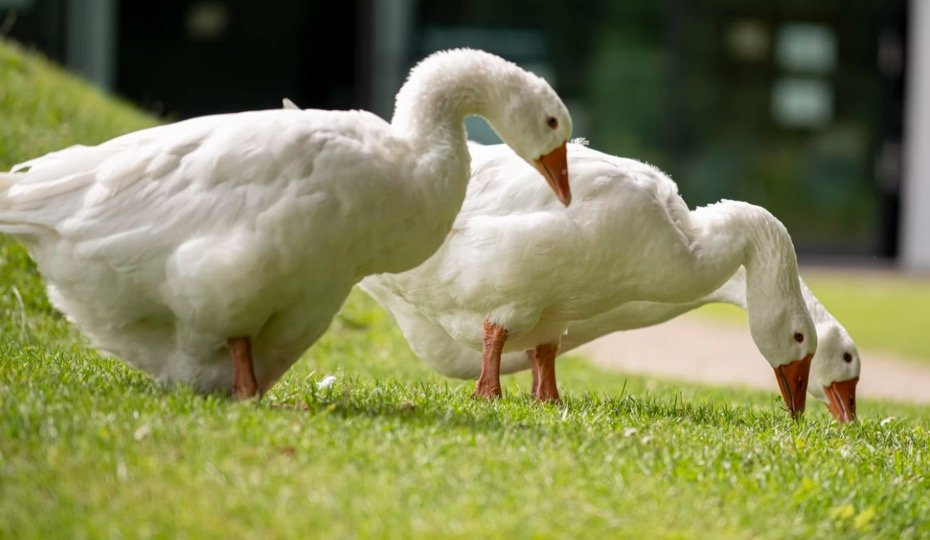
What should you not feed Geese?
While geese typically favour a high-carbohydrate diet, It is critical that they be never overfeeding on ’empty carbs’ like bread. Rotten bread and other rotten diet may be very dangerous to geese and other bird species.
Geese need a balanced and healthy diet and must be fed a range of foods. The other consideration is that excess feeding geese on bread as well as other ‘broken carbohydrates’ promotes diarrhoea, leaving their dietary sites susceptible to microorganisms growth.
This might have an impact on the environment and jeopardize not only geese as well as other birds, and many other animals, arthropods, as well as pet animals.
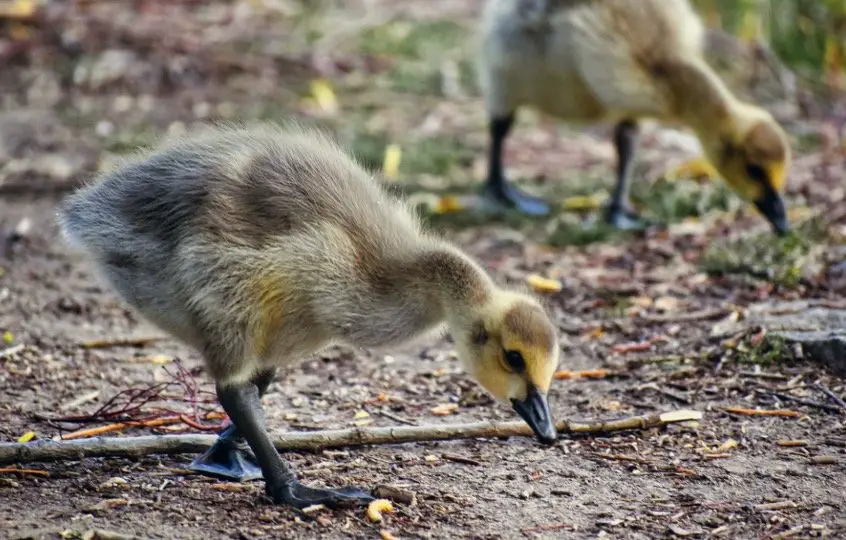
What do baby Geese eat?
A gosling’s diet consists mostly of grass and clovers. Chickweed is also often given to domesticated goslings.
Geese in the wild often prefer lush grassy meadows for their own nests because there are a variety of meadows for the young to eat on a gosling’ nutritional needs are simple, and young bellies are well suited to weaning on soft plant – based foods.
Goslings’ live on grassy meadows as well as develop swiftly after 3 months, they are prepared to fledge, and after 9 months, they leave the parental unit.
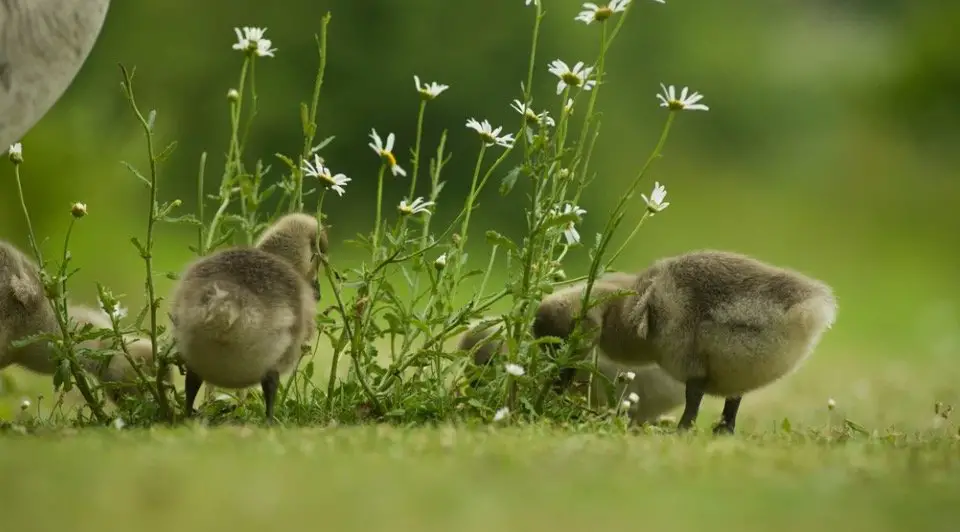
Do Geese eat meat?
In general, geese have always been omnivorous however, geese do not require any kind of meat to survive. While geese can consume small organisms and even tiny fishes, it’s not the major focus of their diet.
Geese are herbivores in every sense of the word, grazing peacefully on grassland and other plant matter while avoiding arthropods and other tiny creatures.
Do Geese eat bread?
There will be much controversy over whether it is suitable to feed bread to birds. Our primary concern should not be that bread is poisonous or hazardous for birds, as long as it is not rotten, yet nutrient content is inadequate.
A bread-stuffed bird will not seek for more nutritional items. While offering bread to geese in modest amounts is typically OK, it is not recommended.
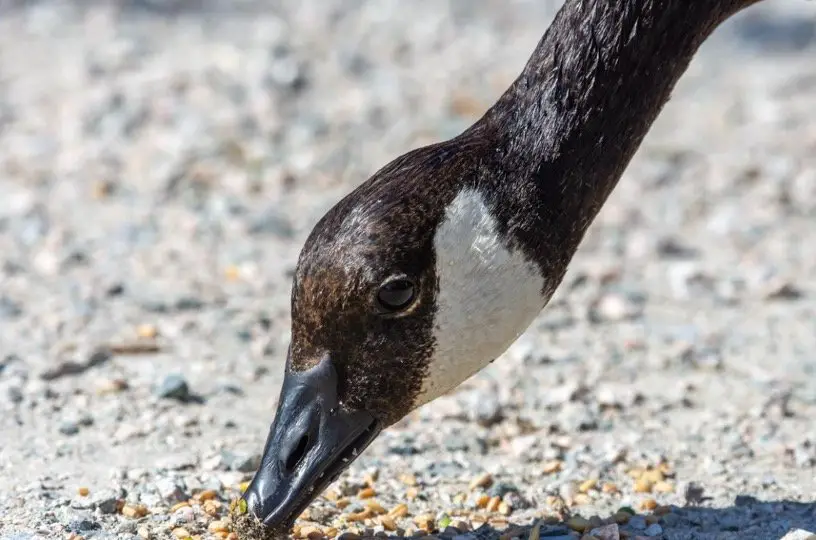
Do Geese eat fish?
They are mostly plant eaters, with many other species ingesting little flesh or fish. Herbivores include certain animals such as Canada geese. Geese are always well to survive with extensive herbivorous diets and would most probably not require eating fish or meat.
Can Geese eat apples?
Geese and other birds may get a lot of energy from apples. Rather of giving huge slices of apples to geese, chop them into manageable portions.
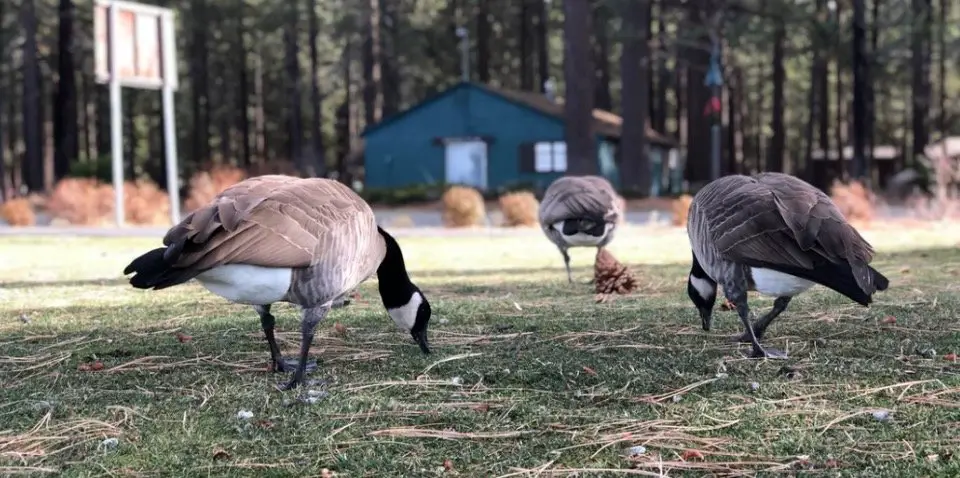
Can Geese eat grapes?
Many wild and domestic birds like grapes. Interestingly, methyl anthranilate, a synthetic grape flavouring, is also present in non-toxic bird repellent, disgusts Canada geese and many other birds. Natural grapes, on the other hand, are delicious!
Are Geese omnivores or vegetarian?
Geese mostly are vegetarians and may occasionally take insects on rare situations tiny fish. They exist purely on plant matter that do not require animal flesh in their own food. Geese, one of the most plant eating birds, consuming more plant matter than ducks or swans combined.
